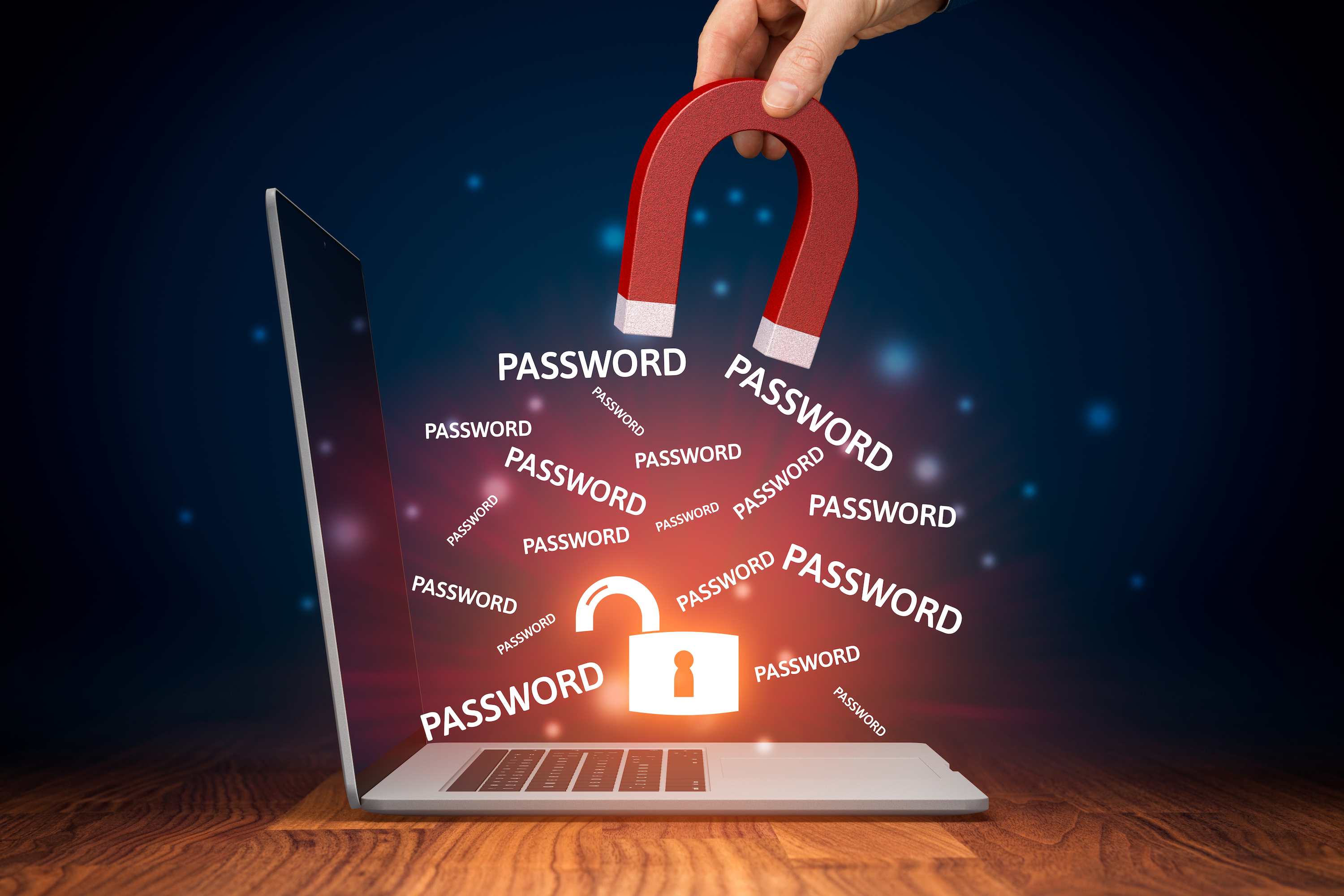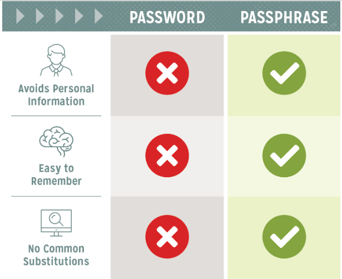The Shift from Passwords to Passphrases: A Safer and More Memorable Approach

We’re living in the digital age, a lightning-fast era where information is obtained from just the tap of our finger. Our personal and professional data is often seconds away, offering unmatched convenience. And with this convenience, the need to safeguard our data takes center stage.
You've heard about passwords, the first gatekeepers to our online world. But have you heard about passphrases? While both methods offer a layer of security, we're going to break each one down and explain why we think passphrases are better for addressing today’s threats. They're not only more secure but also easier to remember than complex password combinations.
First up, the pioneer of security
Passwords – sequences of characters (letters, numbers, symbols) – are used to verify a user's identity or gain access to a resource. You use them everywhere, from your email to your online banking. But in reality – they can be pretty weak. If someone's determined enough, they could crack your weak password with brute force (basically trying every possible combo until they get it right).
While there are extra layers of security like Multi-Factor Authentication (MFA) and password vaults, it’s still not a foolproof system. Think of it like this: MFA is like having a security team that not only checks your ID but also your secret handshake. Password vaults are like secret treasure chests for your passwords, helping you manage the chaos of multiple logins. But guess what? They're not entirely foolproof and if the stars align can become a single point of failure if compromised.
Next up, the modern guardian
Let's shift gears to passphrases. They're similar to passwords, but more evolved. Instead of a sequence of characters, passphrases are sentences or phrases that make sense to you. Longer means stronger in the passphrase world because more words equal more combos for hackers to guess. Plus, they don't have to be complex to be strong. A passphrase like "PurpleMonkeyDishwasher" or "Family pet #1 is named Snickers" is like a fortress against attacks, and they're way easier to remember.
What's the secret to a good passphrase? It's all about making them memorable. Our brains are great at recalling stories or sequences with context, so passphrases with a little flair are perfect. For example, "IEnjoyEatingApplePieOnSundays" not only beats your average password but also tells a short story. Fun fact: Passphrases got the nod of approval from NIST (National Institute of Standards and Technology) in their 800-63B publication. They encouraged companies to allow longer passwords, up to 64 characters, and noted that a passphrase with sufficient complexity does not require a periodic password change.

Word to the wise...don't use any random phrase. Avoid clichés like common phrases, song lyrics, or quotes – those are a hacker's playground. Adding punctuation (when the system allows it) or numbers can improve security, but there’s no need to go overboard. You want it to be memorable, after all.
Which one is stronger?
While passwords have done their duty, passphrases are a better option in today’s world of cyber attacks. They're easier to remember, tougher for bad actors to crack, and they let you stay more secure without taking risky shortcuts. So, as we continue to cruise through the digital era, it's time to drop passwords and get on board with passphrases. Your data will thank you. 🚀🔒
Recent Posts
Posts by Month
- October 2025 (1)
- June 2025 (2)
- April 2025 (2)
- March 2025 (1)
- February 2025 (1)
- January 2025 (1)
- November 2024 (1)
- October 2024 (1)
- August 2024 (1)
- June 2024 (1)
- April 2024 (2)
- February 2024 (1)
- October 2023 (1)
- February 2023 (1)
- November 2021 (2)
- October 2021 (1)
- December 2020 (2)
- November 2020 (2)
- October 2020 (4)
- September 2020 (1)
- August 2020 (1)
- July 2020 (1)
- June 2020 (1)
- May 2020 (1)
- April 2018 (1)
- March 2018 (5)
- February 2018 (3)
- January 2018 (5)
- December 2017 (3)
- November 2017 (3)
- October 2017 (6)
- May 2017 (1)
- January 2016 (3)
- November 2015 (1)
- October 2015 (1)
